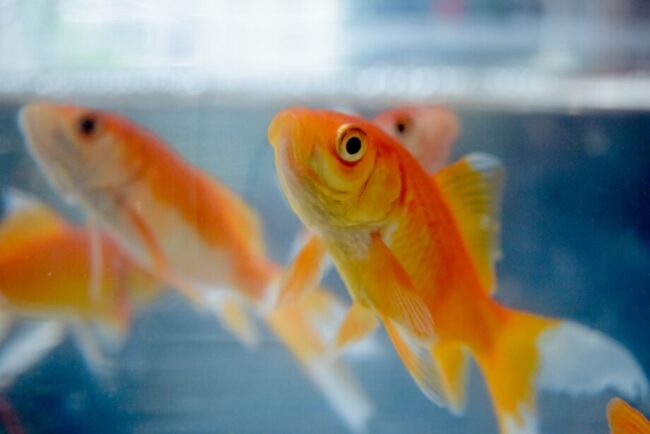Understanding the lifespan of fish is more than just a numerical curiosity; it’s a blend of biology, environmental conditions, and, sometimes, a sprinkle of mystery. Over the years, science has been pretty diligent about examining the factors that contribute to the lifespan of both humans and animals. Fish are an interesting subject in this regard, given the varying conditions in which they live, from aquariums to the wild, from freshwater habitats to the salty depths of the oceans. In this comprehensive article, we’ll cover the lifespan of various types of fish and discuss why they live as long as they do.
How Long Can Different Types of Fish Live?
| Fish Type | Lifespan |
| Angelfish | 10 to 20 years |
| Bala Shark | More than 10 years |
| Betta | 2 to 4 years |
| Blackfin Cory | More than 5 years |
| Blennies | 2 to 4 years |
| Blue Hippo Tang | 8 to 20 years |
| Cherry Barb | 4 to 7 years |
| Chromis | 8 to 15 years |
| Clownfish | More than 10 years |
| Convict Cichlid | Approximately 20 years |
| Damselfish | 2 to 4 years |
| Discus | 10 years |
| Gobies | 2 to 4 years |
| Goldfish | 10 to 30 years |
| Greenland Sharks | Approximately 272 years |
| Guppy | 3 to 5 years |
| Killifish | 1 to 2 years |
| Koi | 25 to 30 years |
| Loaches | 10 to 15 years |
| Midas Cichlid | More than 15 years |
| Molly Fish | 3 to 5 years |
| Neon Tetra | More than 5 years |
| Oscar Cichlid | 10 to 20 years |
| Pearl Gourami | 5 to 8 years |
| Rainbowfish | 5 to 8 years |
| Silver dollars and Pocus | Approximately 10 years |
| Swordtails, Mollies, and Platys | Less than 5 years |
| Yellow/Lemon Cichlid | 6 to 10 years |
Fish Lifespan by Species
The lifespan of a fish is inherently tied to its species. Goldfish and bettas, for example, are among the most commonly kept pet fish. Fish species can be broadly divided into two categories: those that live long and those that have a relatively shorter lifespan. Betas, killifish, swordtails, mollies, and platys generally have shorter lifespans. On the other end of the spectrum, goldfish, loaches, silver dollars, pocus, and convict cichlids have extended lifespans. Interestingly, egg-laying fish are often observed to live longer than their live-bearing counterparts.

Extreme Cases: From Koi to Greenland Sharks
Some fish boast truly astounding lifespans. Koi fish, for example, typically live for 25 to 30 years but have been rumored to reach ages as old as 200 years. Greenland sharks hold the record as the longest-lived vertebrates, with an average life expectancy of 272 years. Some have even been found to live up to 292 years! Unfortunately, most of these long-lived fish rarely reach their potential lifespan due to various factors, including environmental conditions and care.
The Role of Environment: Freshwater vs. Saltwater
Freshwater Fish
In freshwater habitats like the Great Lakes, Lake Sturgeon can live up to 100 years, while Paddlefish have been known to live for 55 years. Most freshwater game fish have an average lifespan of 7-9 years, but larger predatory fish can live even longer. For instance, the bluegill can live up to 10 years, and muskellunge has been known to live up to 30 years.
Saltwater Fish
The ocean is home to some of the longest-lived creatures. The Greenland shark leads the pack with an astonishing average lifespan of 272 years. Sailfish and red drum have respectable lifespans too, at 13-15 years and up to 60 years, respectively. In contrast, the fast-breeding mahi-mahi generally only lives for 4 to 5 years.
Lifespan in Natural Environments
Determining a single, exact lifespan for fish across the board is challenging due to the diversity in types of aquatic environments and temperatures. For example, sturgeons have been found to live more than 100 years, an age quite atypical even for their own species. On average, saltwater fish tend to live for about 20 years, while their freshwater counterparts often reach around 15 years. Intriguingly, lifespan has an inverse relationship with water temperature—the warmer the water, the shorter the lifespan.
Lifespan in Captivity
When it comes to living in captivity, there is a general trend that smaller fish will live shorter lives compared to their larger cousins. However, a well-cared-for aquarium fish could enjoy a lifespan considerably longer than its wild counterpart, primarily because it’s not exposed to predators or extreme environmental factors.
Conclusion
The lifespan of fish is not just a function of their biology but a complex interplay of factors including their environment, diet, and overall care. Whether they’re in the wild or in captivity, understanding these variables can provide insights into how best to maintain their health and longevity. So, the next time you decide to adopt a fish or simply marvel at them during a visit to an aquarium, consider the complex factors at play in determining how long these fascinating creatures will live.

Editorial Staff
Our writers, editors, content managers, and SEO specialist. We all take part in crafting amazing articles. We spend hours ensuring that each article is based on facts, researched, and thorough. You'll never want to click the back button to look for more answers other than here!
